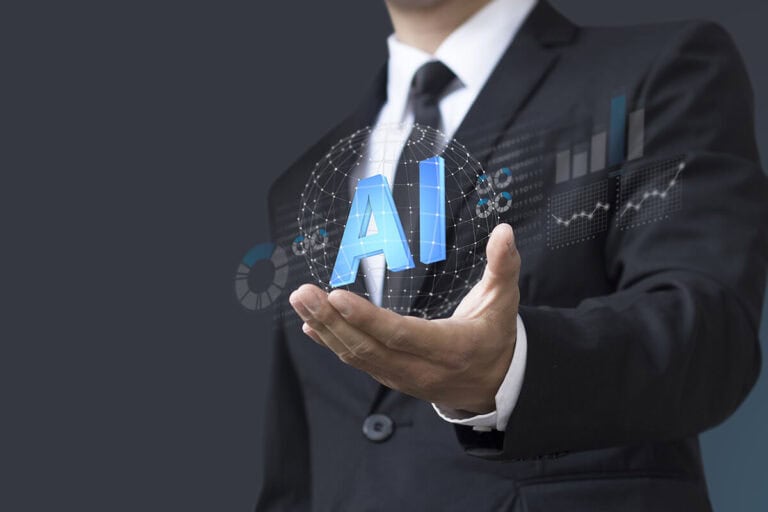In the digital age, technology has played a significant role in reshaping various industries, and education is no exception. Artificial intelligence (AI) has emerged as a transformative force, revolutionizing how we learn and interact with educational content. From personalized instruction to improved efficiency and engaging learning experiences, AI has the potential to reshape online learning as we know it. In this article, has artificial intelligence changed online learning? We explore the positive role of AI in online learning and its benefits to students and educators.
Table of Contents
ToggleEnhancing the Learning Experience through Personalisation
One of the key areas where AI has made a significant impact in online learning is through personalization. Traditional educational approaches often struggle to meet the diverse needs of individual learners. However, with AI-driven algorithms, educational platforms can now analyze students’ learning styles, progress, and interests to create personalized learning paths. By tailoring the educational experience to individual needs, AI fosters better engagement, knowledge retention, and overall student satisfaction.
Adaptive learning powered by AI enables students to progress at their own pace and receive immediate feedback, ensuring that they are challenged appropriately and provided with the necessary support. Through intelligent tutoring systems, AI can provide real-time assistance, answering questions and providing guidance whenever needed. These AI-powered tutoring systems act as virtual assistants, available 24/7 to enhance the learning experience and offer personalized support.
Moreover, AI technologies leverage natural language processing to enhance learner interactions. Students can now ask questions in natural language and receive prompt and accurate responses, creating a more intuitive and efficient communication. The ability to have interactive and conversational interactions with AI-powered systems enhances the overall learning experience and creates a more engaging and dynamic environment.
Speaking to Career Smarter, a leading online learning company, has witnessed firsthand how AI transforms online learning. According to the CEO, “Artificial intelligence has been a game-changer for both our learners and our organization. By leveraging AI, we have been able to personalize instruction, address our students’ unique challenges, and prepare them for the job market. The impact of AI on online learning has been profound, enhancing both the learning experience and the outcomes for our students.”
Has AI Changed Online Learning Efficiency?
Another significant advantage of AI in online learning is its ability to improve efficiency and effectiveness. AI-powered adaptive learning allows students to progress at their own pace and receive immediate feedback, enabling a more personalized learning journey. Intelligent tutoring systems leverage AI to provide real-time support, answering questions and providing guidance whenever needed. These AI-powered tutoring systems act as virtual assistants, available 24/7 to provide personalized assistance to students, enhancing their learning experience.
Additionally, AI technologies enhance efficiency by automating various aspects of the learning process. For instance, AI-powered content creation tools can rapidly generate learning materials based on learning objectives, lecture notes, and more. This automation enables educators to create and update content more efficiently, ensuring that learners have access to up-to-date and relevant materials.
Moreover, AI-enabled data analytics and predictive models can provide valuable insights into students’ learning patterns and progress. Educators can leverage this information to make data-informed decisions, personalize instruction further, and identify areas where students may need additional support. By leveraging AI-driven insights, educators can optimize their teaching strategies, resulting in improved learning outcomes.
Addressing Challenges in E-Learning and Beyond
AI not only enhances the learning experience but also prepares students for the job market. With AI-powered tools, learners can optimize their job search process, including writing cover letters and tailoring their resumes. AI-driven systems can analyze job market trends and provide personalized recommendations, helping students make informed decisions and stand out in a competitive job market. This integration of AI and e-learning creates a seamless transition from education to career, equipping students with valuable skills and knowledge that align with industry demands.
AI has been instrumental in helping learners navigate the job search process. AI-driven technologies enable learners to leverage advanced algorithms and predictive analytics to identify relevant job opportunities, develop tailored job application materials, and gain a competitive edge in their career pursuits. The feedback from learners indicates that AI has been a positive force in the industry, empowering individuals to make informed decisions and find meaningful employment.
How Has AI Changed Online Learning’s Future?
As technology continues to advance, the future of AI in online learning looks promising. AI will continue to evolve and offer educators powerful tools to create engaging content more efficiently. By harnessing the power of AI, we can unlock new possibilities and create a more effective and inclusive learning environment for learners worldwide. The potential for AI-driven e-learning is immense, providing opportunities for personalized learning, efficient student assessment, and seamless integration of immersive technologies like virtual reality and augmented reality.
AI-powered virtual reality and augmented reality experiences provide students with immersive and interactive learning environments, enabling them to explore complex concepts and apply their knowledge in practical scenarios. This experiential learning approach enhances learner engagement, promotes critical thinking, and prepares students for real-world challenges.
Artificial intelligence changed online learning by shifting the landscape significantly, offering personalized instruction, improved efficiency, and enhanced engagement. The positive impact of AI in education is undeniable, benefiting both students and educators alike. As AI continues to evolve, its role in online learning will become increasingly essential, revolutionizing educational practices and shaping the future of e-learning.
By embracing the potential of AI transforming the future of online learning, education can become more accessible, effective, and engaging for learners worldwide, collectively raising the standards of productivity and innovation.
FAQ
A: Artificial Intelligence (AI) has significantly transformed online learning by enhancing engagement, personalization, and efficiency. AI-powered tools can analyze student data to provide tailored content, automate administrative tasks, and offer real-time feedback, ultimately improving the learning experience.
A: AI in online learning enables personalized learning paths based on individual student strengths, weaknesses, and learning styles. By analyzing user interactions and performance data, AI algorithms can recommend relevant resources, adaptive quizzes, and activities, making learning more effective and engaging.
A: Yes, AI has streamlined administrative tasks for educators by automating grading, data analysis, and progress tracking. This allows teachers to focus more on providing targeted support and feedback to students. AI can also flag struggling students, enabling timely interventions to enhance their learning outcomes.
A: AI chatbots have revolutionized student support by offering instant, 24/7 assistance. They can answer common queries, guide students through course materials, and provide real-time help, enhancing accessibility and reducing the need for students to wait for human assistance.
A: AI assists in content creation by automating tasks such as generating quizzes, summarizing complex topics, and suggesting relevant learning resources. Natural language processing can help educators convert their knowledge into interactive e-learning content more efficiently, enriching the online learning experience.
A: While AI offers numerous benefits, challenges include data privacy concerns, potential algorithm biases, and the need for continuous monitoring and improvement. Educators and institutions should ensure ethical AI use, address technical issues, and provide proper training to utilize AI tools effectively in the online learning environment.





